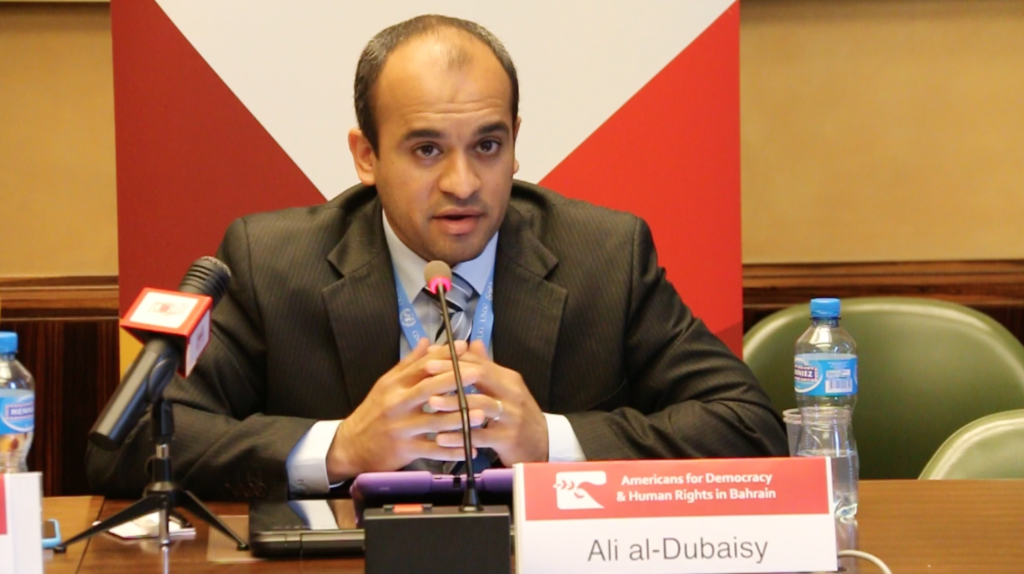On 26 June 2015, Saudi activist Ali al-Dubaisy delivered an oral intervention at the 29th session of the United Nations Human Rights Council in Geneva under Item 6 on human rights in the Gulf Cooperation Council states. Please continue reading for full remarks or click here to download a PDF.
الرجاء الضغط هنا لقراءة هذه الرسالة باللغة العربي
Mr. President,
Alsalam Foundation, together with Americans for Democracy & Human Rights in Bahrain, would like to raise our concern at a troubling trend of some States’ complete disregard for implementing core recommendations of their Universal Periodic Reviews. This trend can be exemplified within Gulf Cooperation Council States like Bahrain and Saudi Arabia.
In 2012, Bahrain was the first country to undergo its Second Cycle UPR. Sixty-seven States produced 176 total recommendations, of which Bahrain accepted 158 recommendations. These recommendations attempted to address persistent human rights abuses such as torture and ill-treatment, security sector abuses, unfair trials and criminal justice, restrictions on free press and human rights defenders, women’s rights, human trafficking and labor laws, and the national dialogue process. Unfortunately, three years later, we see that the issues covered in the recommendations have only worsened, as Bahrain has repeatedly acted in complete contradiction to the recommendations it accepted in its 2012 UPR.
Likewise, Saudi Arabia received 225 wide-ranging recommendations as part of its 2013 Second Cycle UPR. Of those, Saudi Arabia accepted 188 recommendations either fully or partially. These recommendations, addressed areas such as women’s rights, judicial reform, security sector reform, free expression and assembly, and freedom for journalists and human rights defenders. Yet, almost two years since these recommendations were accepted, we have seen Saudi Arabia executing its people at a higher rate than ever, creating parallel courts outside the judiciary to try and sentence human rights defenders, bloggers, activists and other voices of dissent.
In response to these troubling trends in States like Bahrain and Saudi Arabia, we call for greater accountability in implementing the recommendations of the UPR’s Third Cycle, and for the creation of increased follow-up implementation mechanisms, with a view towards fostering increased commitment and engagement with this important mechanism.
Thank you.





